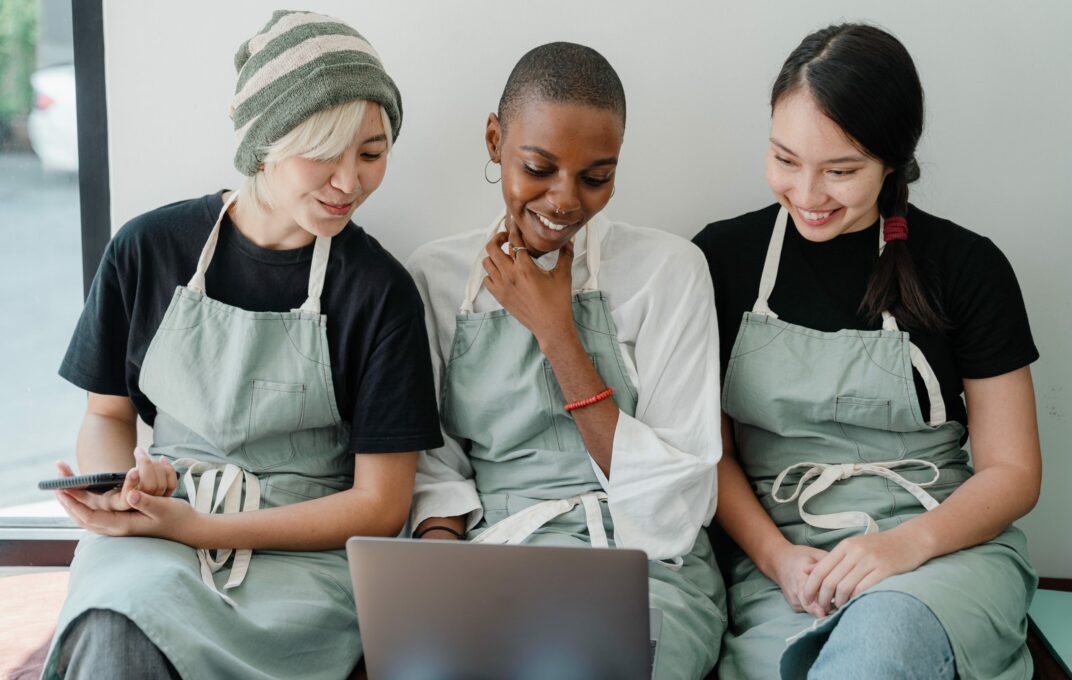Reasons Why Working With A Close Work Friend Can Benefit Your Career

-
categoryCulture
-
authorMelanie Dudek
-
dateJuly 30th, 2020
For many years, Faulhaber Communications has used the Gallup Strengths Assessment to learn where each employee shines and how everyone can work most effectively together. Once a year, we also all complete Gallup’s Q12 Survey to assess our level of employee engagement. The survey covers 12 key elements that evaluate the extent that each individual employee is engaged in their work. It covers a wide range of topics from their belief in the mission to the value they feel heard. One of the most important elements, with a large correlation to engagement level, is how each employee responds to this: “I have a best friend at work.”
Gallup has researched millions of individuals globally and has found that employees who answer highly on this question are more successful and engaged in their workplace. Having a close support system makes them more connected to their organization, and is essential for a healthy work environment.
“Individuals who strongly agree they have a best friend at work are 37% more likely to report that someone at work encourages their development, 28% more likely to report that someone at work has talked to them about their progress in the last six months, and 27% more likely to report that their opinions seem to count at work.” – Gallup.com*
Another metric that makes having a BFF at work so important is simple: performance. Gallup’s research “has repeatedly shown a concrete link between having a best friend at work and the amount of effort employees expend in their job.”
What makes this question tricky is that the majority would say they have a work friend, but many pause at the word “best”. Gallup has found that having a best friend is a key differentiator between high- and low-performing teams, and that simply having “a friend” is not. Having a strong friendship at work often helps an employee answer this imperative question: “Is this job worth it?”
The friendship factor influences an organization’s ability to attract and retain a motivated workforce. The best friend element it not be over-looked – it directly impacts performance. It relates to why people work and why they choose to keep working for you.
The best employers recognize that people want to build meaningful connections. The most important thing to focus on is inclusion and creating a culture where friendships between employees can naturally develop and grow.
As a manager or someone in a leadership role, this is how you can encourage your employees to build a BFF relationship in your own organization:
-
Promote open communication and collaboration.
Communication and collaboration are the pillars of an inclusive culture and create a direct pathway to friendship. Your team needs to feel that they can speak up and be heard, without the fear of rejection. Inviting everyone into the conversation creates a safe space, builds trust, and a sense of belongingness that ultimately leads to deep connection and friendship.
-
Encourage people to get to know one another.
Especially in our industry, many projects involve employees collaborating outside their immediate team. Cross-functional or matrixed teams are the new normal, and a key in making this method successful is consistent communication. By normalizing communication across the wider team, it allows everyone to learn more about each other and sets the stage for relationship building. This is crucial in the time we are currently in, where everything is being done through the screen. In our daily virtual touch-base every morning which includes the whole FSQUAD, we make sure to talk about other things besides work. We discuss what shows we are watching and meet each other’s pets.
-
Promote and participate in social activities.
Culture begins with the leadership team. Their actions set the tone, and ultimately make it acceptable or unacceptable for employees to become friends. It is imperative that as a leader you don’t just organize or approve the event, but you attend and participate. This instills in your team that socialization is encouraged.
At FAULHABER, we are pretty consistent when it comes to group lunch breaks and team coffee runs (back when this was a thing!). As a leader, encourage this, initiate it, and take part! This prioritization of social activity will trickle down to the wider team and pave the way for BFF connections to be built.
* 3 steps are from Gallup.com
Mann, Annamarie. “Why We Need Best Friends at Work.” Gallup.com, Gallup, 5 May 2020, www.gallup.com/workplace/236213/why-need-best-friends-work.aspx.
Marken, Stephanie. “How a Best Friend at Work Changes Engagement in Higher Ed.” Gallup.com, Gallup, 7 July 2020, www.gallup.com/education/260162/best-friend-work-changes-engagement-higher.aspx.